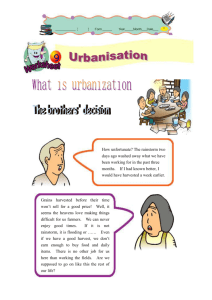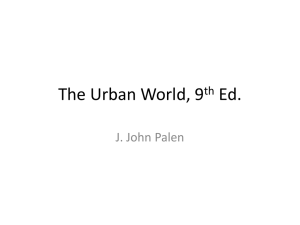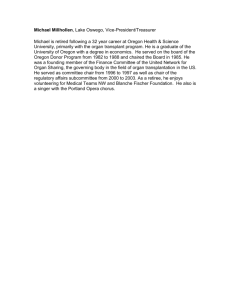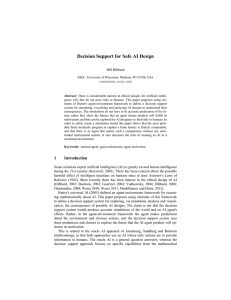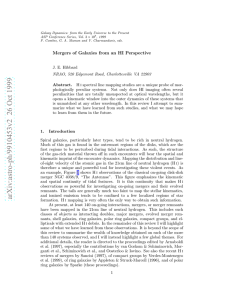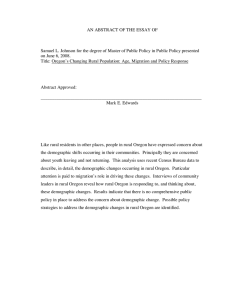SM1603 - ruc international summer school
advertisement
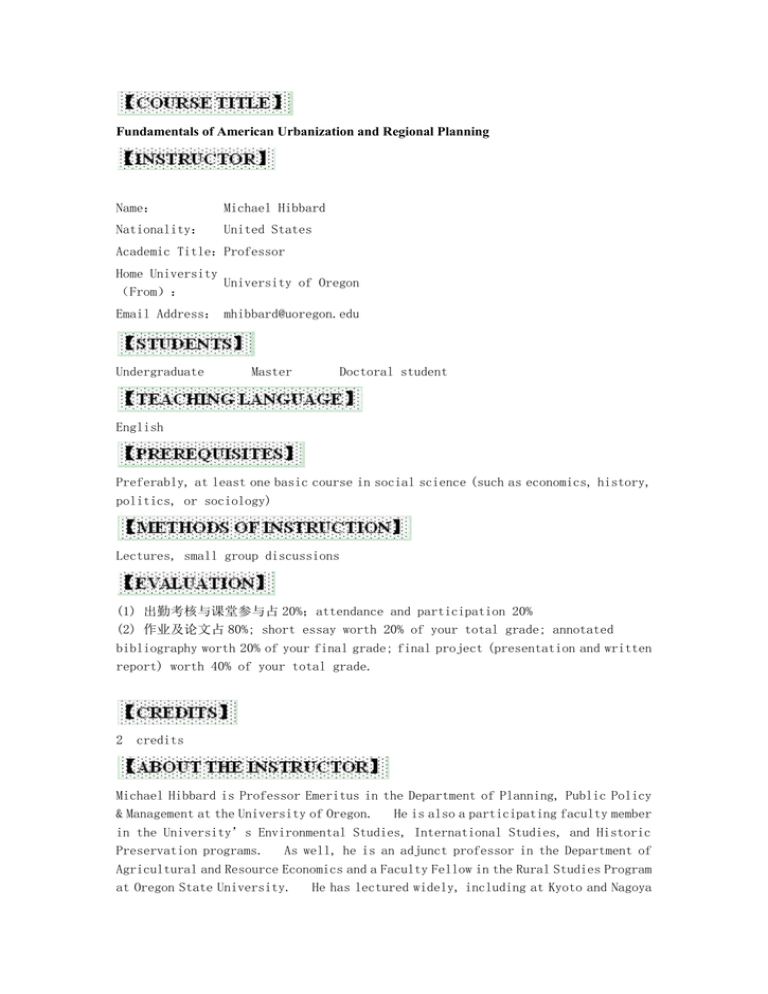
Fundamentals of American Urbanization and Regional Planning Name: Michael Hibbard Nationality: United States Academic Title:Professor Home University University of Oregon (From): Email Address: mhibbard@uoregon.edu Undergraduate Master Doctoral student English Preferably, at least one basic course in social science (such as economics, history, politics, or sociology) Lectures, small group discussions (1) 出勤考核与课堂参与占 20%;attendance and participation 20% (2) 作业及论文占 80%; short essay worth 20% of your total grade; annotated bibliography worth 20% of your final grade; final project (presentation and written report) worth 40% of your total grade. 2 credits Michael Hibbard is Professor Emeritus in the Department of Planning, Public Policy & Management at the University of Oregon. He is also a participating faculty member in the University’s Environmental Studies, International Studies, and Historic Preservation programs. As well, he is an adjunct professor in the Department of Agricultural and Resource Economics and a Faculty Fellow in the Rural Studies Program at Oregon State University. He has lectured widely, including at Kyoto and Nagoya Universities (Japan); Seoul National University (Korea); the University of Queensland, University of New South Wales, Sydney University, and Adelaide University (Australia), University of Malaya (Malaysia), and University of the South pacific (Fiji). Hibbard’s research focuses on community and regional development, with a special interest in the social impacts of economic change on small towns, Indigenous communities, and rural regions, both in the U.S. and internationally. He has co-edited four books and authored or co-authored more than seventy scholarly papers and professional reports on those issues. Among his involvements outside the University, Hibbard has served as president of the Association of Collegiate Schools of Planning and ACSP’s Global Planning Educators Interest Group; as editor of the Journal of Planning Education and Research and Progress in Planning; and as U.S. representative on the steering committee that organized the first World Planning Schools Congress in Shanghai, in 2001. Before entering academia full-time he worked for more than ten years in community and regional development planning. This course is an introduction to the history of the urbanization of the U.S. – how the market economy and regional planning have combined to create and shape American city regions and the system of cities. The first half of the course will be a history of the American city, from early European settlement to the present. We will then look at city regions through a global lens before turning to some of the most pressing issues currently facing American city regions – urban sprawl, rural decline, economic inequality, and environmental degradation. 1、Introduction: The roots of American city regions and the system of cities 2、The Industrial Revolution and the Rise of the Industrial City (~1840-1940) 3、Suburbanization of the Industrial City (~1940-1990) 4、The Current Situation: Back to the City (~1990-present) 5、City Regions through a Global Lens 6、Economic Inequality – A Key Issue for American (and all) City Regions 7、Environmental Degradation – A Key Issue for American (and all) City Regions 8、Conclusion: The Future of City Regions in China, the U.S., and Beyond 1.All of the required material cited above will be posted on-line for students to access. 2.Links will be posted to all references cited above. 3.PPT slides of lectures will be made available after the lecture is presented. Cronon, William. 1991. York: W.W. Norton. Nature's Metropolis: Chicago and the Great West. Lind, Michael. 2012. Land of Promise: States. New York: Harper-Collins. New An Economic History of the United Sanyal, Bishwapriya, Lawrence J. Vale, and Christina D. Rosan, eds, Ideas that Matter. Cambridge, Massachusetts, MIT Press. 2012. Planning



